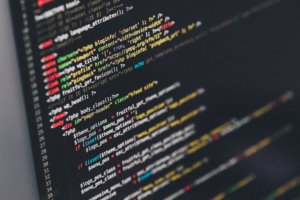BBVA collaborates with MIT to enhance card fraud detection
The aim is to reduce the level of false positives when detecting fraudulent card transactions.

BBVA has partnered with researchers from the Massachusetts Institute of Technology (MIT) in an effort to improve the efficiency of card fraud detection. In particular, the aim is to minimize the level of false positives in fraudulent card transactions.
For years, banks have been using machine learning techniques to detect card fraud. Algorithms are trained to learn to recognize behavioral patterns typical of fraudulent transactions and block subsequent ‘suspicious’ operations. However, this results in false positives. When customers pay an unusual amount of money or use their cards far from their usual locations, their cards often get blocked because the system erroneously qualifies these anomalies as “suspicious”. Let’s recall that, in March last year, for instance, there was a flood of complaints in Russia about bank accounts being blocked following checks for AML compliance conducted by automated systems.
The reason for this is that the automated systems using machine learning are subject to a series of limitations when applied to card fraud. As their ability to detect actual fraudulent transactions grows, so does the number of false positives they derive; put otherwise, the number of legitimate transactions they erroneously label as fraudulent also rises.
Aiming to improve the situation, BBVA’s Corporate Security and Engineering Risk (CS&ER) team started collaborating with MIT’s Computer Science and Artificial Intelligence Lab (CSAIL) in 2015. The MIT and BBVA research team used the Deep Feature Synthesis method, a model developed by two MIT researchers, Kalyan Veeramachaneni and James Max Kanter, which makes it possible to derive highly detailed features from datasets in an automated manner.
This new approach allowed the research team to derive over 200 new additional features from every transaction. These features can be used to describe the behavior of card transactions in greater detail and improve the results yielded by the detection engines. Some of these new features used to fine tune true positive results indicate, for example, whether the user was physically present while the transaction was taking place, or the average time spent in certain stores. This helps to more accurately identify when a particular card user’s transaction veers from the norm.
So far, tests are yielding promising results. False positives have fallen markedly, while keeping the same level of fraud detection, compared to other existing products and systems. Specifically, applying the model to a dataset of 1.8 million BBVA transactions cut the number of false positives by 54% over traditional models, saving the bank approximately €190,000.
Applying the results of this research to BBVA’s fraud detection systems has proven that they have the potential to improve customer satisfaction in card transactions without compromising current security standards.









